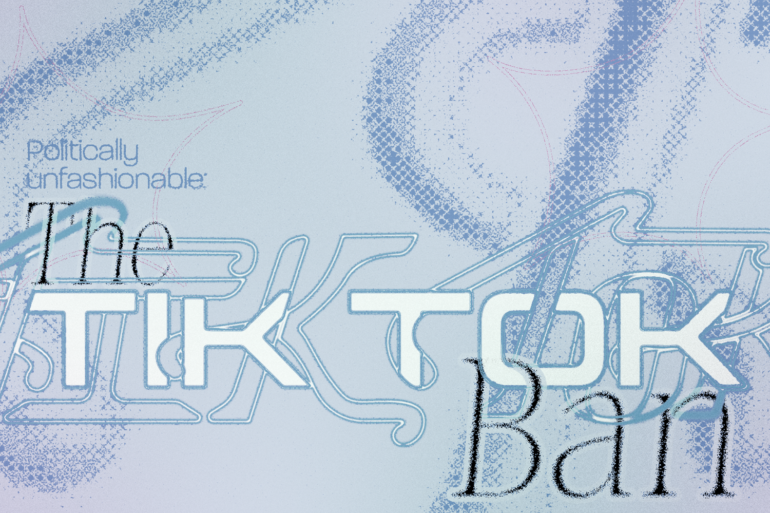On the house floor, debates like climate change and gun control don’t seem to be on the agenda. The “protection of children” label has been placed on something new this month. TikTok. I won’t get into the order of importance in political topics, though data collection isn’t my personal top priority.
Now I’m not here to get into the binary details of the political and national security aspects of this ban. What I do know is by signing up for the internet, you’re allowing it into your life, no matter the facet. Newsflash, Alexa is listening, and so is every other application you endlessly scroll on. Data collection is where the money is, not Instagram Reels. The U.S. government doesn’t like “gossip”, and TikTok is the platform for both sides of the political spectrum to communicate information in a matter of nanoseconds.
All that Capitol Hill talk out of the way, TikTok is important. Social media as a whole is important for our generation (and others) to share not only political information, but everything, including fashion.
During the peak of the pandemic, people used TikTok as a form of self-expression. Between 2016 and 2023, TikTok saw an unparalleled arc in growth compared to other social media platforms, surpassing Instagram in the number of users at the beginning of 2021.
Fashion doesn’t exist in the centerfolds of Vogue anymore. It is all active, and ever-changing through the lines of code of social media. Do you think it’s just a coincidence that the rise of aesthetics and subcultures happens congruently with social media? With its wealth of information, Tik Tok may be more useful than the Vogue Archives. Every day new aesthetics are seen and smaller creators’ voices are heard, uplifting important ideas and previously forgotten styles.
We’ve seen TikTok users take over the runway, for better or for worse. Alex Consani’s fame would’ve been challenging to achieve without TikTok in her micro purse. The fashion industry is cutthroat and loves nepotism, but TikTok is giving platforms to those who would’ve never got their foot in the door years ago.
Fashion isn’t an untamable beast, a Goliath of an industry. It’s personal. People wear clothes, not models. TikTok allows us to separate clothes from models, and see clothes on people. It’s allowed individuals and communities to share themselves and be accepted, something every Meta platform has tried and failed miserably.
TikTok is a subculture’s carrier pigeon. It gives humanity to the subcultures, the cores, and the aesthetics people feel drawn to and a part of. Those “scary goths” your mom warned you about, they’re teaching proofs and the periodic tables on TikTok. I can appreciate fashion as well as hear about different viewpoints and people on TikTok, something no runway show or magazine cover story has allowed me to do.
There will always be a place in my heart for high fashion and fashion as art, but no platform is better at showcasing that and still allowing the human side of fashion to shine through. Fashion is a world for everyone, and TikTok is a place for young and old creators to relate, learn, and become inspired. At the end of the day, I like to see what real people wear during their real-life days.
Although there are bound to be disagreements with this, TikTok is a part of the media. It is sharing information no matter the topic or the bounds. Banning TikTok not only silences smaller creators, but also mutes the voice of any user on the platform. Free speech is in, controlling what people say is out, and a TikTok ban is anything but fashionable.
Words by Evan Skovronsky.
Graphic by Reem Hinedi.

